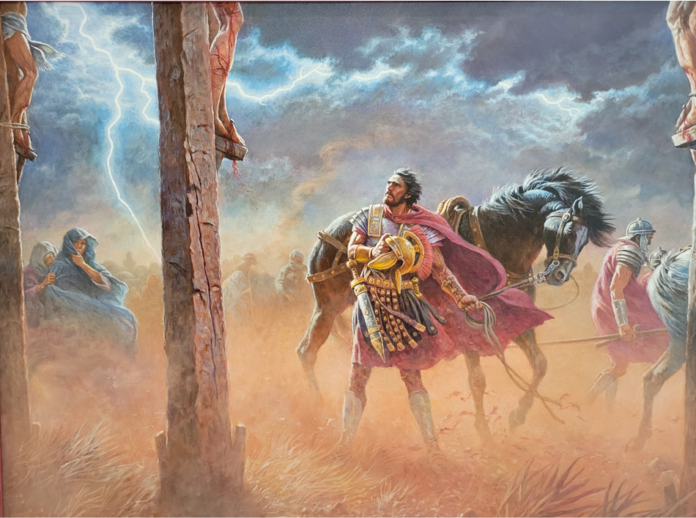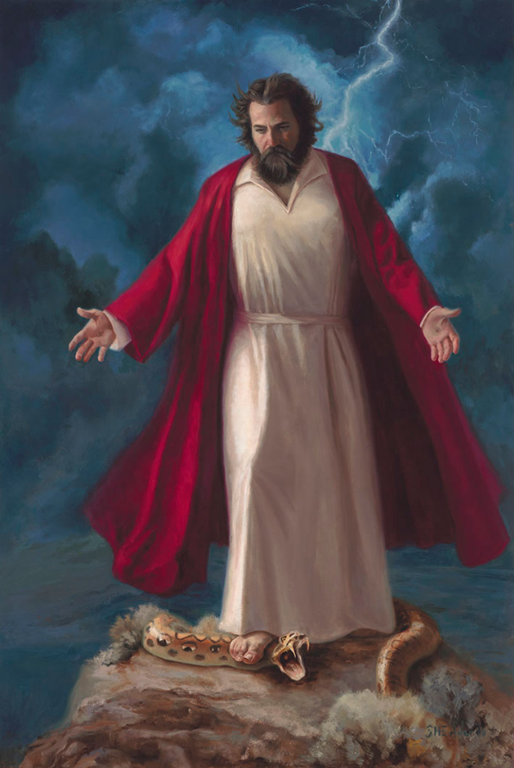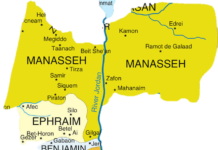In coming days, it will not be possible to survive spiritually without the guiding, directing, comforting, and constant influence of the Holy Ghost.” President Russell M Nelson April 2018
The Prophets and Apostles have warned us to follow the Spirit found in the Standard Works and the teachings of the Apostles and Prophets. Remember that Satan is near the end of his power, and knowing this even the very elect will be deceived. I am no different than each of you. We must push harder and stronger than we ever have to secure our own witness of truth. We should utilize all the tools the Lord has given us, but never relinquish our own witnesses by trusting others too much. In this day and age don’t simply believe the learned and those of intellect. Many are always trying to “sell” me on their pet theories, or “just trust me”, they say. The Lord has no agenda, many others do. I share the following words of our leaders with hope that what they say will support what I am suggesting. The Brethren are even saying, “don’t just depend on us.” Our leaders want us to trust completely in the Lord Jesus Christ.
Think about some of these very difficult decisions we are being asked to make today? Decisions about our health, employment, virtue, freedom, conscious, religion, values, and ethics. God would be the best one to help us today. May we choose wisely in this difficult world, with His overwhelming assistance. Above, you see the Thursday only schedule of speakers at our upcoming Expo. Please click here for tickets and here for the entire schedule. Speakers are still giving us the titles to their presentations and we will post them when they arrive. We have over 75 speakers and over 125 presentations live in Layton,
Above, you see the Thursday only schedule of speakers at our upcoming Expo. Please click here for tickets and here for the entire schedule. Speakers are still giving us the titles to their presentations and we will post them when they arrive. We have over 75 speakers and over 125 presentations live in Layton,
Utah April 7-9, 2022. Join us!
Prophets Advice
“Whenever I hear anyone, including myself, say, “I know the Book of Mormon is true,” I want to exclaim, “That’s nice, but it is not enough!” We need to feel, deep in “the inmost part” of our hearts, that the Book of Mormon is unequivocally the word of God. We must feel it so deeply that we would never want to live even one day without it. I might paraphrase President Brigham Young in saying, “I wish I had the voice of seven thunders to wake up the people” to the truth and power of the Book of Mormon ” President Russell M. Nelson The Book of Mormon: What Would Your Life Be Like without It?
“When did I ever teach any thing wrong from this stand? when was I ever confounded? I want to triumph in Israel before I depart hence and am no more seen — I never told you I was perfect— but there is no error in the revelations which I have taught — must I then be thrown away as a thing of nought? — I enjoin for your consideration, add to your faith, virtue, love &c l say in the name of the Lord, if these things are in you, you shall be fruitful. I testify that no man has power to reveal it, but myself, things in heaven, in earth and hell — and all shut your mouths for the future — I commend you all to God, that you may inherit all things — & may God add his blessings. Amen” The Words of Joseph Smith; The Contemporary Accounts of the Nauvoo Discourses of the Prophet Joseph Andrew F. Ehat and Lyndon W. Cook, Editors12 May1844 pg.369
I reverence the Constitution of the United States as a sacred document. To me its words are akin to the revelations of God, for God has placed His stamp of approval upon it.
I testify that the God of heaven sent some of His choicest spirits to lay the foundation of this government, and He has now sent other choice spirits to help preserve it.
We, the blessed beneficiaries of the Constitution, face difficult days in America, “a land which is choice above all other lands” (Ether 2:10)… Ezra Taft Benson “Our Divine Constitution Ensign Oct 1987
A Final Testimony by Hugh B. Brown, 1999
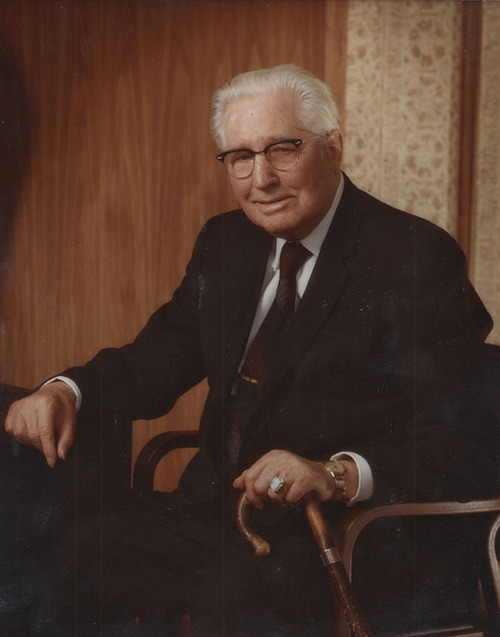
Courtesy | Intellectual Reserve, Inc.
There seems today to be a tendency toward flippant thinking, a lack of thought. There seems to be a tendency to belittle what our fathers and mothers thought because we feel we have made some progress scientifically. We are to ready to conclude that everything from past generations is now folly and that our main duty today, as far as the past is concerned, is to get away from it.
There is not enough of the attitude of the sincere investigator among us. When we come into a new field of research that will challenge our due and honest consideration, we should be warned against coming too quickly to a conclusion, of forming a decision too hastily. We should be scientific — that is, open-minded, approaching new problems without prejudice, deferring a decision until all the facts are in.
Some say that the open-minded leave room for doubt. But I believe we should doubt some of the things we hear. Doubt has a place if it can stir in one an interest to go out and find the truth for one’s self. I should like to awaken in everyone a desire to investigate, to make an independent study of religion, and to know for themselves whether or not the teachings of the Mormon church are true.
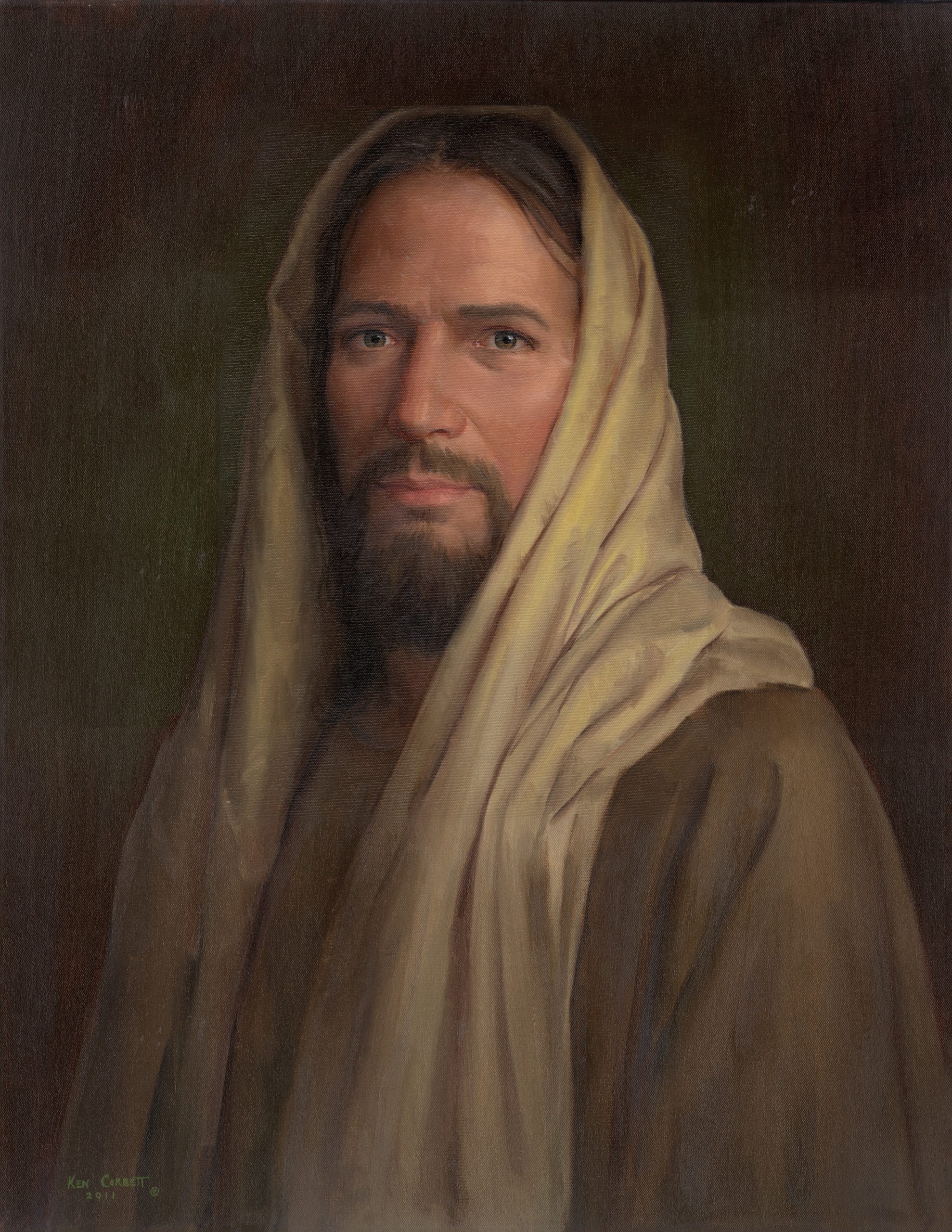 I should like to see everyone prepared to defend the religion of his or her parents, not because it was the religion of our fathers and mothers but because they have found it to be the true religion. If one approaches it with an open mind, with a desire to know the truth, and if one questions with a sincere heart what one hears from time to time, he or she will be on the road to growth and service.
I should like to see everyone prepared to defend the religion of his or her parents, not because it was the religion of our fathers and mothers but because they have found it to be the true religion. If one approaches it with an open mind, with a desire to know the truth, and if one questions with a sincere heart what one hears from time to time, he or she will be on the road to growth and service.
There are altogether too many people in the world who are willing to accept as true whatever is printed in a book or delivered from a pulpit. Their faith never goes below the surface soil of authority. I plead with everyone I meet that they may drive their faith down through that soil and get hold of the solid truth, that they may be able to withstand the winds and storm of indecision and of doubt, of opposition and persecution. Then, and only then, will we be able to defend our religion successfully. When I speak of defending our religion, I do not mean such defense as an army makes on the battlefield but the defense of a clean and upright and virtuous life lived in harmony with an intelligent belief and understanding of the gospel. As Mormons, we should do with religion as we do with music, not defend it but simply render it. It needs no defense. The living of religion is, after all, the greatest sermon, and if all of us would live it, we would create a symphony which would be appreciated by all.
There are many churches in the world today, and in those churches are many people and many kinds of theology. I would like to distinguish between theology and religion. Religion is my preference. Someone has said, “I hate botany, but I love flowers.” I would say that I do not care for theology, but I love religion.
In my travels I have found a great many people who have had some rather perverted ideas about Mormons. Frequently during my army days I was asked, “How many wives do you have?” And I would say, “Well, I live in a country where we have all the wives we want.” Of course, I was immediately met with a knowing smile, and some of my army friends would comment, “I would like to live in a country like that.” I would answer, “Don’t you live in a country where you have all the wives you want? We have all the wives we want in Utah, but we only want one each.”
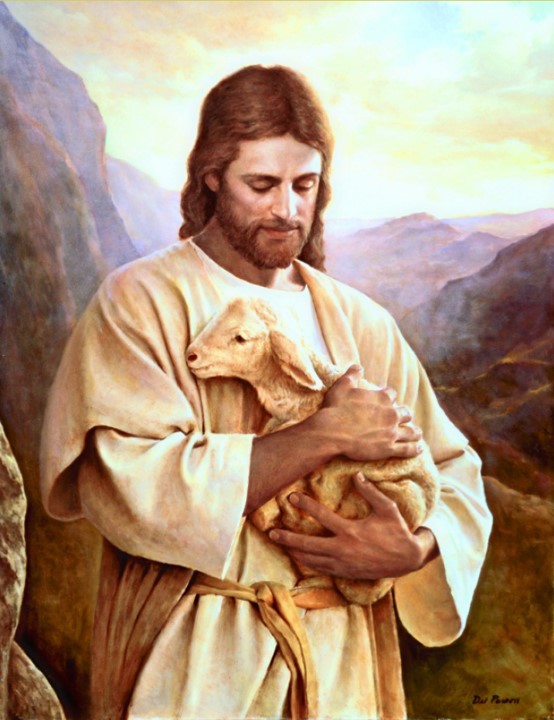 The Mormon church has a religion aside from its theology, which, if followed, dominates the life of individuals and leads them up out of the grueling surroundings which life may have placed them in, and teaches them that they are children of God and that being children of God they are of royal blood. The Church of Jesus Christ of Latter-day Saints has this practical view of religion: that religion should help us here and now; that we should not have to wait until after we are dead to get any benefits; that religion as understood and applied makes men and women more successful, happier, more contented, gives them aspiration and hope; that religion is the vitalizing force, religion is that which gives men and women an ideal, an ideal so high that it may be seen from both sides of the valley of life. The religion of the Latter-day Saints teaches youth that as children of God, they are expected to acquire experience as they go through life and that experience will ripen into knowledge, that knowledge will ripen into wisdom and intelligence, and that their greatness will be in proportion to their intelligence.
The Mormon church has a religion aside from its theology, which, if followed, dominates the life of individuals and leads them up out of the grueling surroundings which life may have placed them in, and teaches them that they are children of God and that being children of God they are of royal blood. The Church of Jesus Christ of Latter-day Saints has this practical view of religion: that religion should help us here and now; that we should not have to wait until after we are dead to get any benefits; that religion as understood and applied makes men and women more successful, happier, more contented, gives them aspiration and hope; that religion is the vitalizing force, religion is that which gives men and women an ideal, an ideal so high that it may be seen from both sides of the valley of life. The religion of the Latter-day Saints teaches youth that as children of God, they are expected to acquire experience as they go through life and that experience will ripen into knowledge, that knowledge will ripen into wisdom and intelligence, and that their greatness will be in proportion to their intelligence.
So the religion of the Latter-day Saints is not just theory from a book or taught in church. The gospel is a plan of which God is the author, a plan of which we are all necessary parts.
My religion sweetens my life. My religion, if properly lived, helps me to be a better friend to my associates, a better neighbor, a better citizen, a better father, a better man. If I am sincere in it, my religion forbids me to do to my neighbors what I would not want them to do to me, either in word or act. My religion, in other words, is that which is the greatest part of me.
I have been very grateful that the freedom, dignity, and integrity of the individual are basic in church doctrine. We are free to think and express our opinions in the church. Fear will not stifle thought. God himself refuses to trammel free agency even though its exercise sometimes teaches painful lessons. Both creative science and revealed religion find their fullest and truest expression in the climate of freedom.
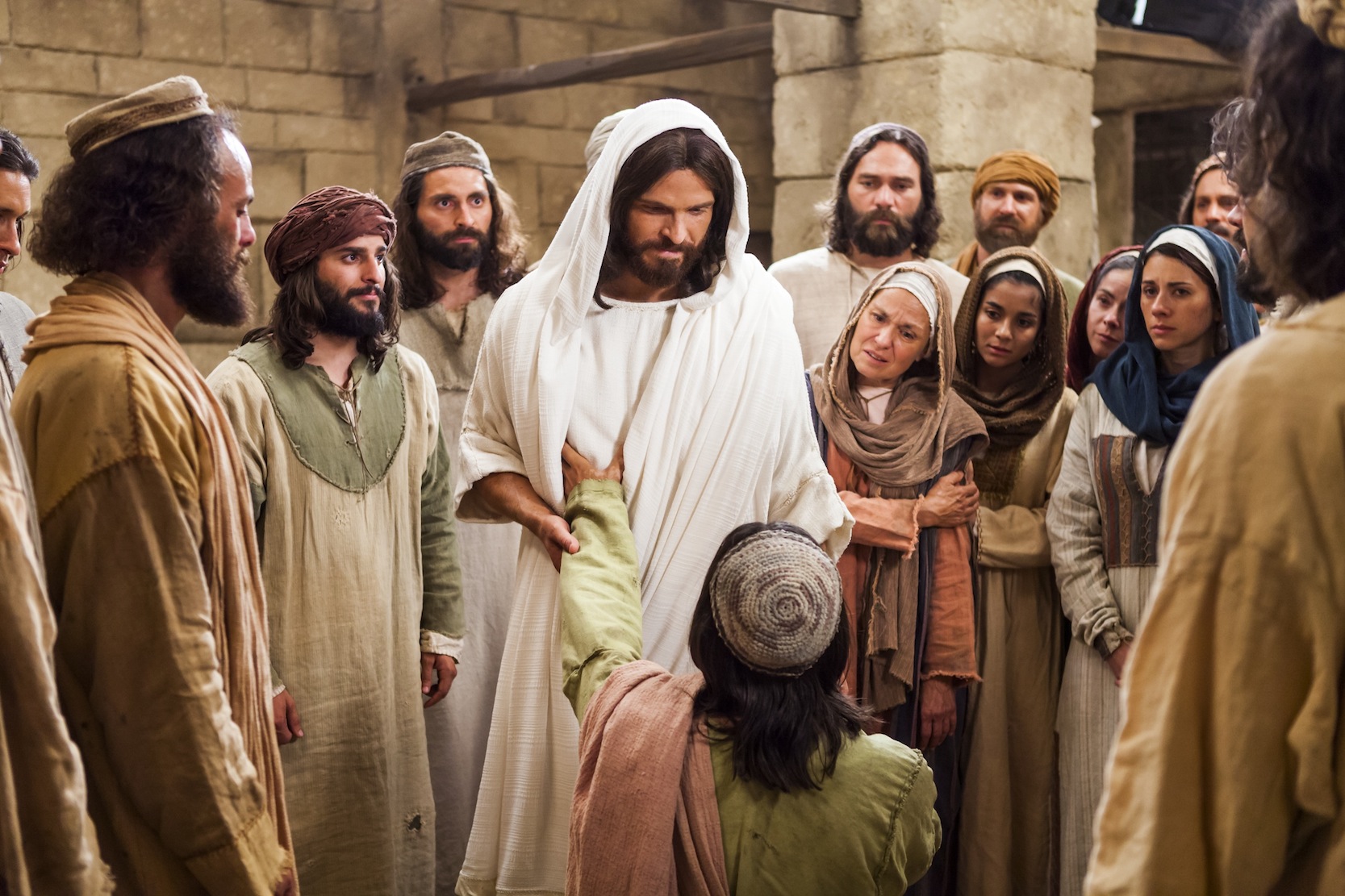 As we all proceed to make our individual “declarations of independence,” I hope we can distinguish between liberty and license, that we can realize that freedom is only a blessing if it is accompanied by wisdom and intelligence. At the same time, we all need to resist the down-drag of mental laziness which sometimes leads to the premature hardening of the intellectual arteries. And I would especially urge all of us to avoid sluggishness of spirit, which is the worst kind of lethargy. Some people are phlegmatic to a degree that would make a turtle seem intolerably vivacious.
As we all proceed to make our individual “declarations of independence,” I hope we can distinguish between liberty and license, that we can realize that freedom is only a blessing if it is accompanied by wisdom and intelligence. At the same time, we all need to resist the down-drag of mental laziness which sometimes leads to the premature hardening of the intellectual arteries. And I would especially urge all of us to avoid sluggishness of spirit, which is the worst kind of lethargy. Some people are phlegmatic to a degree that would make a turtle seem intolerably vivacious.
I admire men and women who have developed the questing spirit, who are unafraid of new ideas as stepping stones to progress. We should, of course, respect the opinions of others, but we should also be unafraid to dissent — if we are informed. Thoughts and expressions compete in the marketplace of thought, and in that competition truth emerges triumphant. Only error fears freedom of expression.
Both science and religion beget humility. Scientists and teachers of religion disagree among themselves on theological and other subjects. Even in our own church men and women take issue with one another and contend for their own interpretations. This free exchange of ideas is not to be deplored as long as men and women remain humble and teachable. Neither fear of consequence or any kind of coercion should ever be used to secure uniformity of thought in the church. People should express their problems and opinions and be unafraid to think without fear of ill consequences.
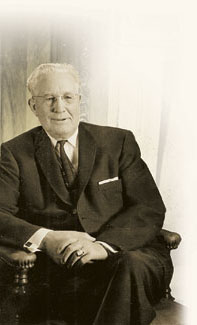
We should all be interested in academic research. We must go out on the research front and continue to explore the vast unknown. We should be in the forefront of learning in all fields, for revelation does not come only through the prophet of God nor only directly from heaven in visions or dreams. Revelation may come in the laboratory, out of the test tube, out of the thinking mind and the inquiring soul, out of search and research and prayer and inspiration. We must be unafraid to contend for what we are thinking and to combat error with truth in this divided and imperiled world, and we must do it with the unfaltering faith that God is still in his heaven even though all is not well with the world.
We should be dauntless in our pursuit of truth and resist all demands for unthinking conformity. No one would have us become mere tape recorders of other people’s thoughts. We should be modest and teachable and seek to know the truth by study and faith. There have been times when progress was halted by thought control. Tolerance and truth demand that all be heard and that competing ideas be tested against each other so that the best, which might not always be our own, can prevail. Knowledge is the most complete and dependable when all points of view are heard. We are in a world of restlessness and skepticism, where old things are not only challenged but often disappear, but also a world of miraculous achievement, undreamed of accomplishment, and terrifying power.
Science offers wonderful tools for helping to create the brotherhood of humanity on earth, but the cement of brotherhood does not come from any laboratory. It must come from the heart and mind and spirit of men and women.
Peace and brotherhood can be achieved when the two most potent forces in civilization — religion and science — join to create one world in its truest and greatest sense. We should continue to become acquainted with human experience through history and philosophy, science and poetry, art and religion. Every discovery of science reveals clearly the divine plan in nature. The remarkable harmony in the physical laws and processes of the universe, from the infinitesimal to the infinite, surpasses mortal understanding and implies a supreme architect, and the beauty and symmetry of God’s handiwork inspire reverence.
One of the most important things in the world is freedom of the mind; from this all other freedoms spring. Such freedom is necessarily dangerous, for one cannot think right without running the risk of thinking wrong, but generally more thinking is the antidote for the evils that spring from wrong thinking.
 More thinking is required, and we should all exercise our God-given right to think and be unafraid to express our opinions, with proper respect for those to whom we talk and proper acknowledgment of our own shortcomings. We must preserve freedom of the mind in the church and resist all efforts to suppress it. The church is not so much concerned with whether the thoughts of its members are orthodox or heterodox as it is that they shall have thoughts. One may memorize much without learning anything. In this age of speed there seems to be little time for meditation.
More thinking is required, and we should all exercise our God-given right to think and be unafraid to express our opinions, with proper respect for those to whom we talk and proper acknowledgment of our own shortcomings. We must preserve freedom of the mind in the church and resist all efforts to suppress it. The church is not so much concerned with whether the thoughts of its members are orthodox or heterodox as it is that they shall have thoughts. One may memorize much without learning anything. In this age of speed there seems to be little time for meditation.
While speak of independence and the right to think, to agree or disagree, to examine and question, I need to remind myself not to forget that fixed and unchanging laws govern all God’s creation, whether the vastness of the starry heavens or the minute revolving universe of the atom or human relationships. All is law. All is cause and effect, and God’s laws are universal. God has no favorites; no one is immune from either life’s temptations or the consequences of his or her deeds. God is not capricious.
An individual’s reactions to the ever-changing impacts of life will depend upon his or her goals and ideals. Every life revolves around certain fundamental core ideas, whether we realize it or not, and herein lies the chief value of religion. But while I believe all that God has revealed, I am not quite sure I understand what he has revealed, and the fact that God has promised further revelation is to me a challenge to keep an open mind and be prepared to follow wherever my search for truth may lead.
We Mormons have been blessed with much knowledge by revelation from God which, in some part, the world lacks. But there is an incomprehensibly greater part of truth yet to be discovered. Revealed insights should leave us stricken with the knowledge of how little we really know. It should never lead to an emotional arrogance based upon a false assumption that we somehow have all the answers — that we in fact have a corner on truth. For we do not.
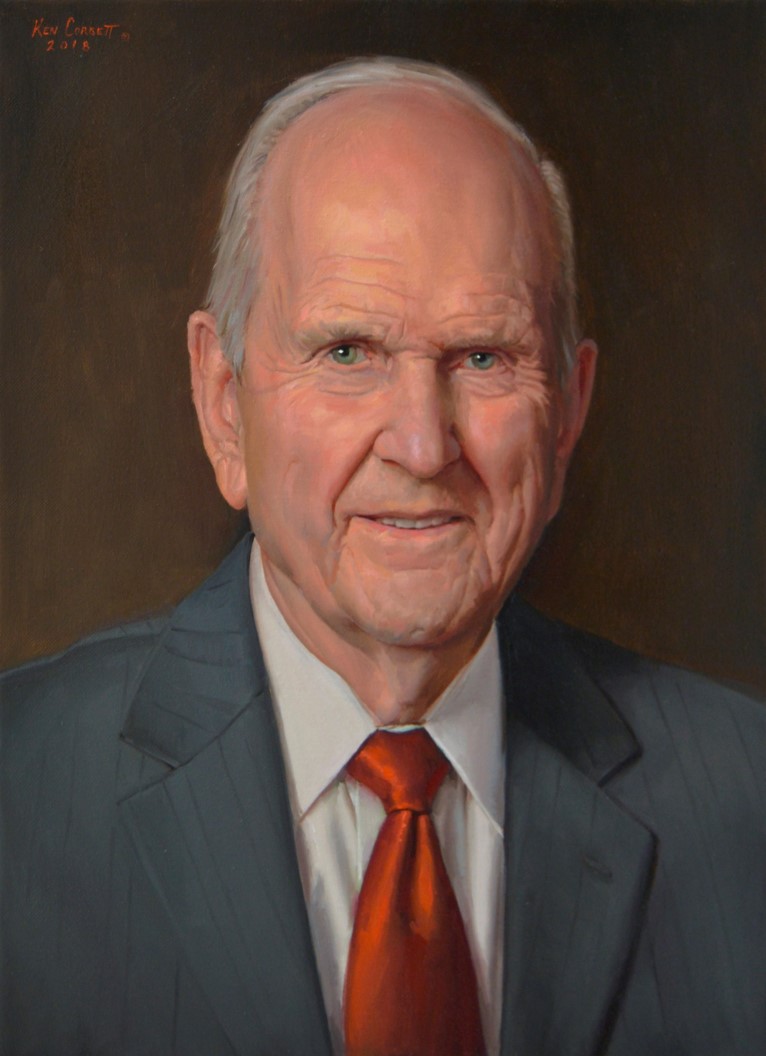 And while all members should respect, support, and heed the teachings of the authorities of the church, no one should accept a statement and base his or her testimony upon it, no matter who makes it, until he or she has, under mature examination, found it to be true and worthwhile; then one’s logical deductions may be confirmed by the spirit of revelation to his or her spirit, because real conversion must come from within.
And while all members should respect, support, and heed the teachings of the authorities of the church, no one should accept a statement and base his or her testimony upon it, no matter who makes it, until he or she has, under mature examination, found it to be true and worthwhile; then one’s logical deductions may be confirmed by the spirit of revelation to his or her spirit, because real conversion must come from within.
I hope that the spirit of the Holy Ghost rests upon everyone and leads us all back into the presence of our heavenly parents. I hope that everyone might conduct his or her life in such a manner as to be worthy of God’s continued blessings. And I especially hope that we might all be able, as we go forward, to walk figuratively and almost literally with our hand in God’s hand and to feel the effect of God’s presence in our lives, doing everything in Jesus’ name and with God’s blessings.”
[Ed: Hugh B. Brown served in the LDS Quorum of Twelve Apostles during the period 1958-1975, and in First Presidency during the period 1961-1970, serving under President David O. McKay. The article below is a classic of modern LDS literature, affirming the worth of education and open-minded free thinking, and urging young LDS to develop their full talents and pursue careers in academic and scientific research. This article is taken from Edward B. Firmage, The Memoirs of Hugh B. Brown: An Abundant Life, Signature Books, Salt Lake City, 1988, pg. 135-140, with permission of Firmage.]

